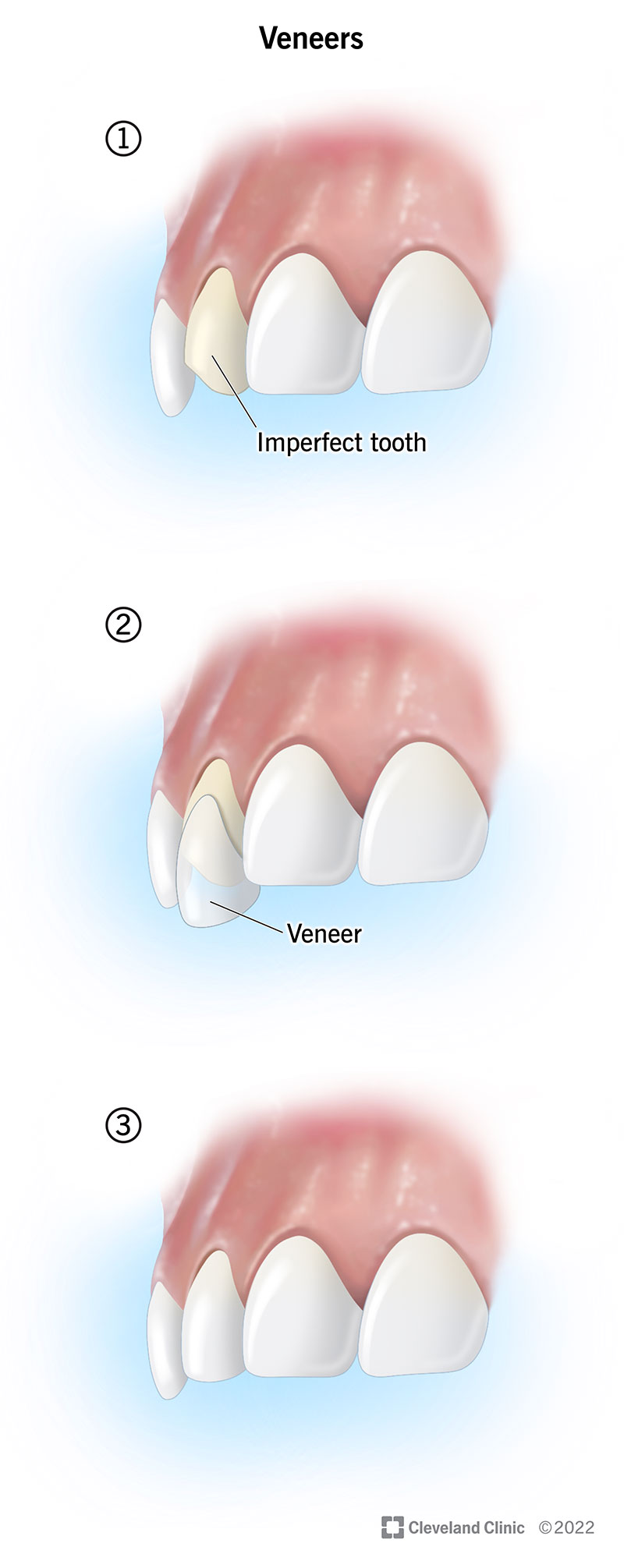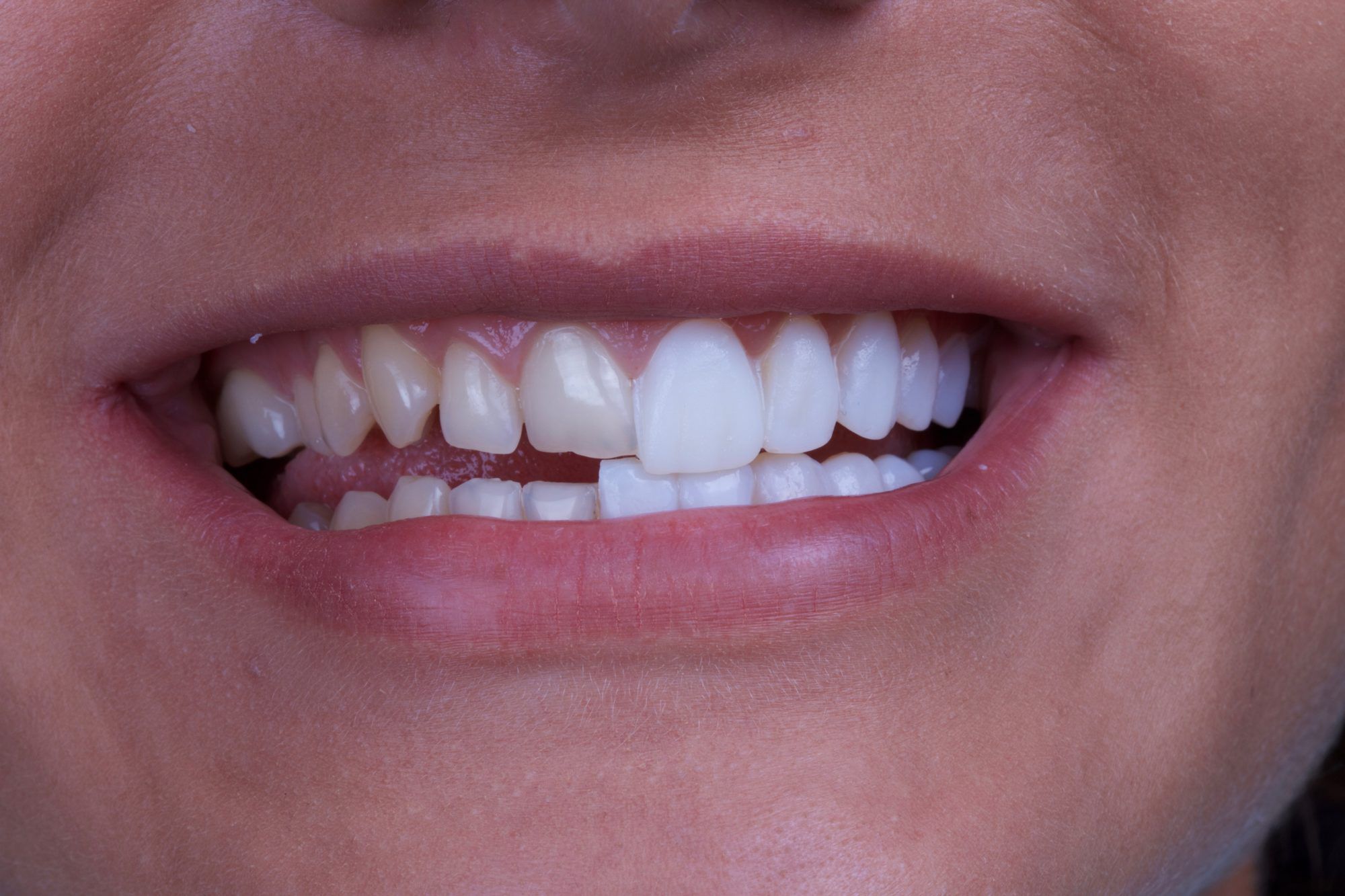The Full Overview of Veneers: Kinds, Makes use of, and Their Influence on Your Smile
Veneers work as a prominent service for people seeking to enhance their oral aesthetic appeals. These custom-crafted coverings can efficiently mask flaws such as staining and gaps. With two main kinds offered, porcelain and composite material, each offers distinct advantages and limitations. The effect of veneers extends beyond mere appearance, influencing self-esteem and social interactions. Comprehending their types and benefits is necessary. What might this suggest for one's overall lifestyle?
Comprehending Veneers: What They Are and How They Work
Veneers are thin shells, normally made from porcelain or composite resin, that are custom-crafted to fit over the front surface area of teeth. They offer both aesthetic and practical objectives, giving a remedy for various oral blemishes such as staining, voids, and small imbalances. By sticking to the tooth enamel, veneers create a natural appearance while boosting the shape and color of the teeth.
The process typically involves a first consultation, where a dental practitioner assesses the patient's requirements and goes over desired results - Porcelain Veneers. Following this, a marginal amount of enamel may be eliminated to accommodate the veneer. Impressions of the teeth are after that taken to assure a precise fit. As soon as made, the veneers are bound safely to the teeth using an unique oral adhesive. This procedure not just improves the smile's look however likewise helps shield the underlying teeth from additional damages, making veneers a prominent choice for several seeking a smile makeover
Types of Veneers: Porcelain vs. Compound Resin
The difference in between porcelain and composite resin veneers depends on their product structure and qualities. Each kind uses varying levels of price, resilience, and long life, affecting clients' selections based on their private needs. Understanding these differences is essential for making a notified choice relating to dental enhancements.
Material Differences Described
While both porcelain and composite material veneers serve the very same cosmetic function, they differ considerably in product residential or commercial properties, durability, and aesthetic outcomes. Porcelain veneers are crafted from a ceramic material that resembles the natural transparency of teeth, offering a realistic look. Their smooth surface area is immune to staining, making them an appealing option for those seeking a durable visual. On the other hand, composite resin veneers are made from a tooth-colored plastic material, supplying flexibility and convenience of application. Nonetheless, they might not attain the very same degree of illumination or translucency as porcelain. In addition, composite veneers can be extra quickly formed and fixed, making them a much more versatile choice in specific oral scenarios. Each type offers special benefits tailored to private choices.
Longevity and Resilience
Long life and resilience are significant elements when comparing porcelain and composite material veneers. Porcelain veneers are understood for their toughness, usually long lasting 10 to 15 years with correct care. Their strength versus discoloring and chipping makes them a popular option for individuals looking for long-lasting results. On the other hand, composite material veneers normally have a shorter life-span, balancing 5 to 7 years. While they can be repaired extra quickly if damaged, they are a lot more prone to use and staining gradually. The choice in between these products typically depends on the individual's lifestyle, aesthetic objectives, and upkeep preferences. Ultimately, understanding the differences in long life and resilience can lead clients in selecting the veneer type that ideal fits their demands.
Cost Comparison Insights
When choosing in between porcelain and composite resin veneers, expense is a crucial consideration. Porcelain veneers generally vary from $800 to $2,500 per tooth, reflecting their toughness, aesthetic charm, and resistance to discoloration. These veneers require an extra extensive treatment and specialized lab job, adding to their greater price. In contrast, composite material veneers are usually much more economical, setting you back between $250 and $1,500 per tooth. They can be applied in a single see, which lowers labor costs. Nevertheless, composite veneers might need much more regular substitutes, potentially boosting long-term costs. Eventually, the option in between porcelain and composite material veneers relies on private budgets and preferred end results, stabilizing initial costs against durability and aesthetic results.
The Benefits of Choosing Veneers for Your Smile
Choosing veneers offers significant advantages for those seeking an improved smile. Their enhanced visual charm can transform the look of teeth, while their stain-resistant buildings guarantee a long-term illumination - Porcelain Veneers Dentist. This mix makes veneers a preferred choice for individuals aiming to attain a remarkable smile
Boosted Visual Allure
Veneers frequently arise as a preferred service due to their transformative aesthetic advantages when individuals look for to improve their smiles. These thin coverings, usually made of porcelain or composite material, can successfully hide imperfections such as chips, voids, and misalignment. By mimicking the natural look of teeth, veneers offer a seamless, radiant smile. Their personalized nature enables a customized method, enabling individuals to pick tones and shapes that ideal fit their facial attributes. In addition, veneers can develop a consistent appearance, enhancing total face balance. This visual enhancement not just enhances self-confidence however can additionally favorably influence social interactions and personal partnerships, making veneers a popular option for those aiming to attain a brighter, much more appealing smile.
Tarnish Resistance Conveniences
Veneers not only improve visual appeal however additionally use significant tarnish resistance, making them an attractive alternative for people concerned concerning preserving an intense smile. Composed of resilient products such as porcelain or composite resin, veneers are much less porous than all-natural teeth, which assists protect against the absorption of spots from typical offenders like coffee, tea, and merlot. This fundamental discolor resistance allows individuals to appreciate their favorite drinks without look at this web-site fretting about discoloration. Porcelain Veneers Dentist. In addition, the smooth surface of veneers makes them easier to tidy, more boosting their longevity and preserving their pristine look. Consequently, veneers give a practical service for those seeking both charm and performance in their dental care
The Refine of Obtaining Veneers: What to Anticipate

Although the process of getting veneers might appear daunting, recognizing the actions entailed can alleviate issues. Originally, an assessment with a dental professional is necessary to establish if veneers are the ideal remedy for the person's oral issues. During this appointment, the dental professional will certainly review preferred outcomes and take perceptions of the teeth.
Next, a 2nd visit is scheduled for tooth preparation, where a percentage of enamel is commonly gotten rid of to fit the veneers. Temporary veneers may be positioned while the customized ones are crafted in a dental laboratory, which normally takes a couple of weeks.
As soon as all set, the dental expert will place the veneers, making certain appropriate fit and shade prior to bonding them to the teeth utilizing a special adhesive. After last adjustments, the dental expert will certainly offer guidance on care. Recognizing these actions can assist people really feel extra comfy and informed throughout the veneer procedure.
Maintenance and Look After Your Veneers
Maintaining veneers needs constant treatment to guarantee their long life and appearance. Proper oral health is vital; cleaning two times daily with a non-abrasive toothpaste and flossing consistently help stop plaque build-up around the veneers. In addition, routine dental check-ups are essential for keeping track of the problem of the veneers and addressing any type of potential problems early.
When attacking to prevent damages, individuals must avoid tough foods and excessive force. It's likewise advisable to restrict consumption of staining substances, such as coffee, tea, and red white wine, as these can impact the veneers' color with time.

Transforming Your Smile: Real-Life Impact of Veneers
A radiant smile can significantly improve one's self-confidence and overall appearance. For many individuals, veneers act as a transformative solution, efficiently resolving various dental worries such as staining, voids, and misalignment. These slim coverings, personalized to fit over the front of the teeth, can develop a harmonious and visually pleasing smile.
Real-life cases show the extensive impact veneers can have. Patients typically report an instant boost in self-confidence and social interactions following their treatment. The newly found self-confidence can cause more chances in individual and expert life, as people feel more likely to involve and reveal themselves.
Furthermore, the mental benefits expand past simple appearance; several experience enhanced mental health as they accept their smiles. Subsequently, veneers not only enhance physical characteristics but additionally add considerably to general lifestyle, highlighting their worth in aesthetic dentistry.
Regularly Asked Concerns
Exactly How Long Do Veneers Commonly Last Prior To Requiring Substitute?
Veneers usually last between 10 to have a peek at these guys 15 years prior to calling for replacement. Variables such as oral health, dental routines, and the sort of material utilized can influence their durability and overall toughness. Regular oral examinations are a good idea.
Can Veneers Be Eliminated, and if So, Just how?
Yes, veneers can be removed. A dental professional typically utilizes customized tools to very carefully detach them from the teeth, making sure very little damages to the underlying enamel, often followed by needed changes or reconstructions for perfect appearances.
Are Veneers Suitable for Everyone's Dental Problem?

Will Getting Veneers Hurt or Require Anesthetic?
Getting veneers normally entails minimal pain, and lots of individuals receive local anesthesia to guarantee a pain-free experience. Level of sensitivity might occur briefly afterward, but many locate the process tolerable and are pleased with the results.
Exactly How Do Veneers Affect Tooth Sensitivity After Placement?
Veneers can momentarily enhance tooth level of sensitivity due to the removal of enamel and the bonding procedure. Most people experience a decline in sensitivity in time as the teeth get used to the new veneers.
Veneers are thin shells, usually made from porcelain or composite material, that are custom-crafted to fit over the front surface area of teeth. Porcelain veneers are crafted from a ceramic product that resembles the all-natural transparency of teeth, giving a lifelike appearance. Porcelain veneers usually vary from $800 to $2,500 per tooth, showing their longevity, visual allure, and resistance to discoloration. In comparison, composite material veneers are normally a lot more inexpensive, setting you back in between $250 and $1,500 per tooth. Composed of sturdy products such as porcelain or composite resin, veneers are much less permeable than natural teeth, which assists stop the absorption of discolorations from typical perpetrators like coffee, tea, and red white wine.